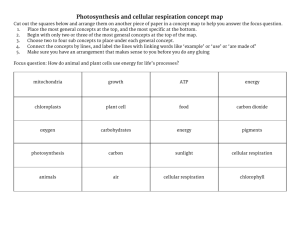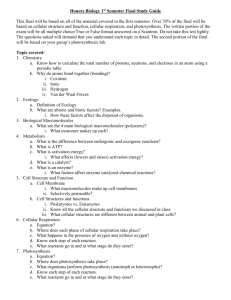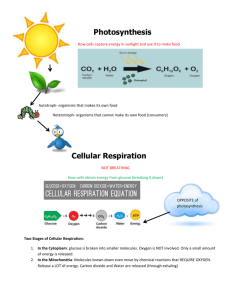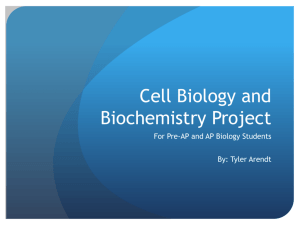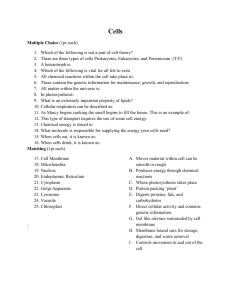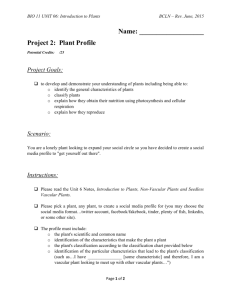Agenda - Davis Science
advertisement
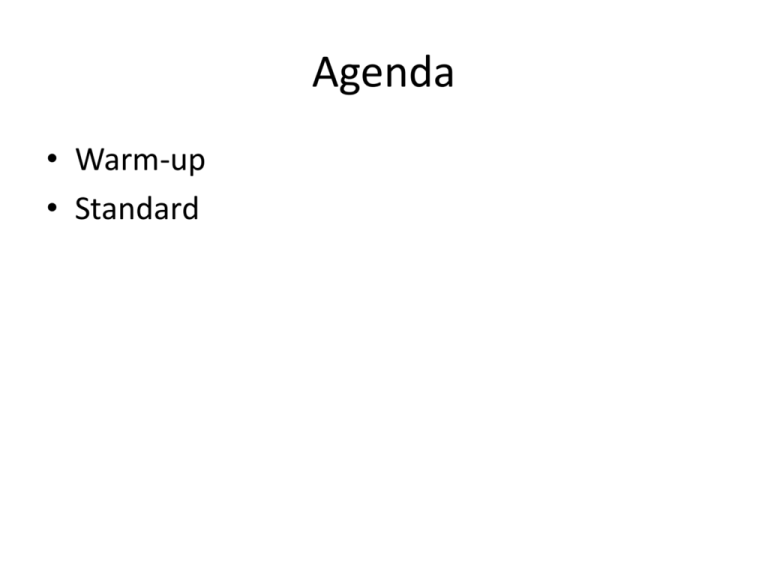
Agenda • Warm-up • Standard Warm-up • A solution that has a higher solute concentration than the concentration inside the cell. • A molecule that that when combined with others makes a polymer • List the products of photosynthesis; the molecules that come out of the reaction. • The organelle that acts as a highway for proteins and other particles. Compare and contrast the four types of organic macromolecules. Explain how they compose the cellular structures of organisms and are involved in critical cellular processes. Proficiency Levels Description · Students will be able to classify the four macromolecules (carbohydrates, proteins, lipids, nucleic acids) based on their basic properties. Exceeds 25% · Students will be able to draw, label and explain the sources of reactants and destination of products for photosynthesis and cellular respiration for plant and animal cells. · Students will be able to match the following macromolecules: protein, lipids, carbohydrates and nucleic acids to their correct function and or picture. Meets 75% · Students will be able to draw a generic cell, labeling area’s where the four macromolecules are located (protein, lipids, carbohydrates, and nucleic acids). · Identify products and reactants of photosynthesis and cellular respiration and determine the qualities of a decomposition and synthesis reaction. Agenda • • • • • Warm-up Reaction Types Quiz Correct Quiz Flashcards Chemical Reactions Synthesis: A + B C or AB Decomposition: AB A + B Types: Synthesis Example C + O2 C + O O O C O C C O O C CC O O C C C C C C CC C General: A + B AB Types: Decomposition Example: NaCl Cl Na General: Cl + Na AB A + B Types: Decomposition Example 2HgO O Hg O Hg General: Hg + O O Hg AB A + B C. A. D. B. Warm-Up • Give the function of these 3 organelles – Ribosome • Makes proteins – Mitochondria • Energy production – Nucleus • Controls function and stores information • Write the chemical reactions for Cellular Respiration and Photosynthesis and describe how they relate to each other. – 6O2 + C6H12O6 6H2O + 6CO2 + Energy – 6CO2 + 6H2O + Light C6H12O6 + 6O2 – The reactions are opposites. Agenda • • • • • Warm-Up Hand Back Quizzes Answer Questions Flash-cards Work Time
